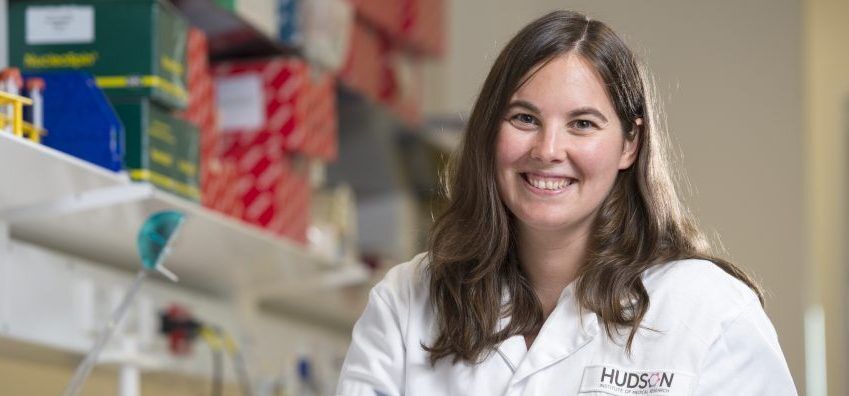New role for cell death-related protein in stomach cancer
By Hudson Institute communications

New research from Hudson Institute of Medical Research is showing how a pro-inflammatory protein could offer new hope for stomach cancer treatment.
A study, led by Dr Virginie Deswaerte and Professor Brendan Jenkins, found that modifying key components of the inflammatory response in the body could help to prevent tumour growth.
The findings have been published in the journal, Cancer Research.
“Stomach or gastric cancer is the third leading cause of cancer death worldwide. It is caused by the abnormal growth of cells in the lining, or mucosa, of the stomach. In 2015, there were 1150 deaths from stomach cancer in Australia,” Dr Deswaerte says.
The team found an ‘anti-killer’ role of the inflammasome – a regulator of the immune system in stomach cancer.
“Using both human and mouse samples, we showed that a protein called ASC, and the cytokine it induced called interleukin 18 (IL18), both promote the growth of stomach cancer,” Dr Deswaerte says.
In human gastric tumour samples, the team showed a correlation between elevated levels of the IL-18 protein and ASC with stomach cancer growth.
“However, when we genetically deleted ASC or IL-18 in human samples or mice, the growth of stomach cancer was suppressed due to an increase of cell death. Collectively, our findings reveal that targeting this signalling pathway could be a way to treat gastric cancer,” Dr Deswaerte says.
“Our study significantly advances our knowledge and understanding of what causes stomach cancer. The ASC inflammasome has been studied in other type of cancers but never in stomach cancer.
“We are currently investigating another protein involved in the activation of the inflammasome that could potentially be another target to treat gastric cancer.”
The study was collaboration with the Walter and Eliza Hall Institute of Medical Research, Monash University, La Trobe University, The University of Melbourne, University of Geneva and Kanazawa University.
Journal | Cancer Research
Title | Inflammasome Adaptor ASC Suppresses Apoptosis of Gastric Cancer Cells by an IL18-Mediated Inflammation-Independent Mechanism
View publication | https://doi.org/10.1158/0008-5472.CAN-17-1887
About Hudson Institute
Hudson Institute’ s research programs deliver in three areas of medical need – inflammation, cancer, women’s and newborn health. More
Hudson News
Get the inside view on discoveries and patient stories
“Thank you Hudson Institute researchers. Your work brings such hope to all women with ovarian cancer knowing that potentially women in the future won't have to go through what we have!”
